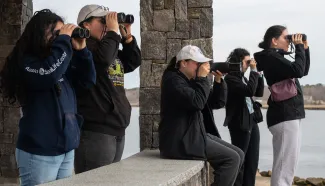
As the UNE Birders president, Haley Hines melded their love of birds with their desire to help others
At the University of New England birding club’s first meeting of 2025, Haley Hines (Animal Behavior, ’25) welcomed members to Decary Hall and invited them to grab markers to make Valentine’s Day cards that celebrated birding, a growing outdoor activity that involves finding and identifying bird species.
Then Hines, the UNE Birders president, said they wanted to share two interviews with renowned Black birders for the club’s consideration, videos that could play in the background as the club members made their cards.
As one who grew up in southern New Hampshire as the only Black person in their family and one of the few in their community, Hines found peace and inspiration from birds and birding at an early age.
According to the U.S. Fish and Wildlife Service’s most recent data in 2022, 96 million American adults say they bird — a whopping 37% of the population. But, of the ranks of birders across the nation, 75% are White.
At UNE, Hines decided to meld their love of birds with a desire to help others when they were elected president of UNE Birders last spring. Throughout the past year, Hines shared stories and information about marginalized groups that bird and threw out an oversized, all-comers invitation to every birding event the club hosted.
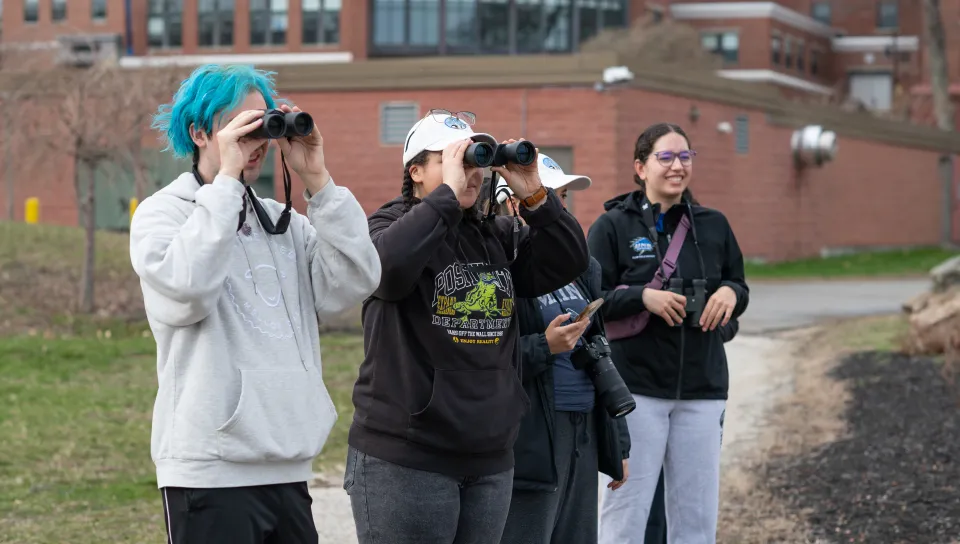
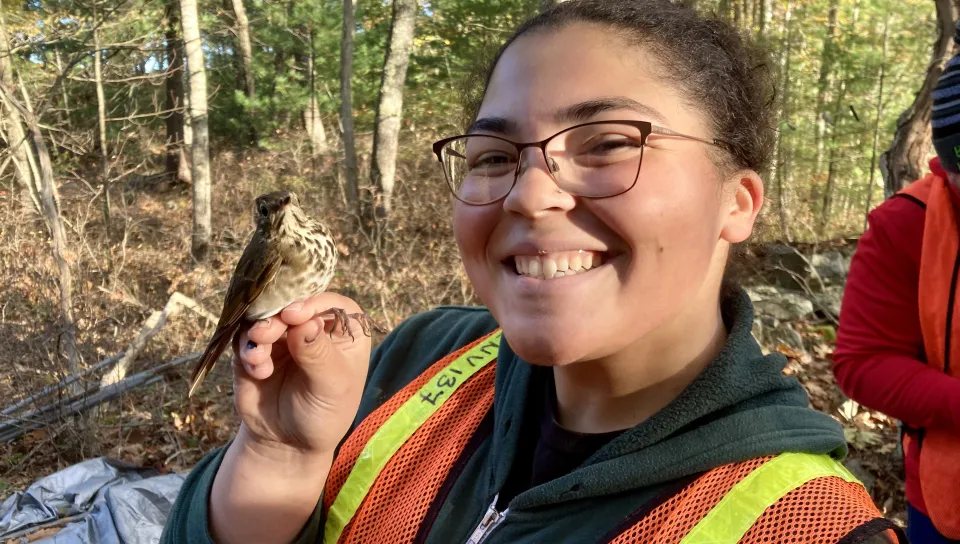
At the bimonthly meetings, Hines wove in information on Birdability, which helps those with disabilities bird, and news about Black Birding Week. Hines also started regular Saturday-morning birding walks — a first for the club.
“I do take the advocacy work seriously,” Hines said. “It's not lost on me, the fact that I am the only Black member of my birding club; it's not lost on me the importance of that."
Hines also organized a panel of experts who could share information about research internships in ornithology.
“Every seat was full,” said UNE Professor Noah Perlut, Ph.D., an ornithologist and the club’s faculty advisor since it was founded in 2020. “There was a lot of good discussion and questions.”
Hines’s efforts are noteworthy, said Perlut, who sat on the panel with Bethany Woodward, Ph.D., a UNE teaching professor of environmental studies, and Violet Wu, a graduate student in biological sciences.
“(The club) has gone through waves, but since Haley has been a leader in it, the vibrancy and the amount of activity has just been different,” Perlut said. “It's been stronger and more active and intentionally inclusive of inviting as many people as possible. It's got a great tone to it. I really think that’s Haley's leadership.”
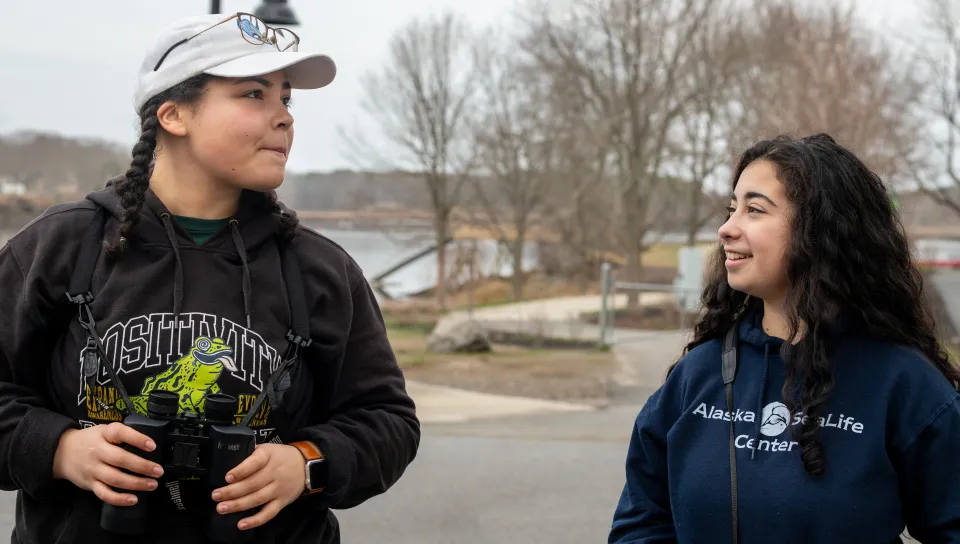
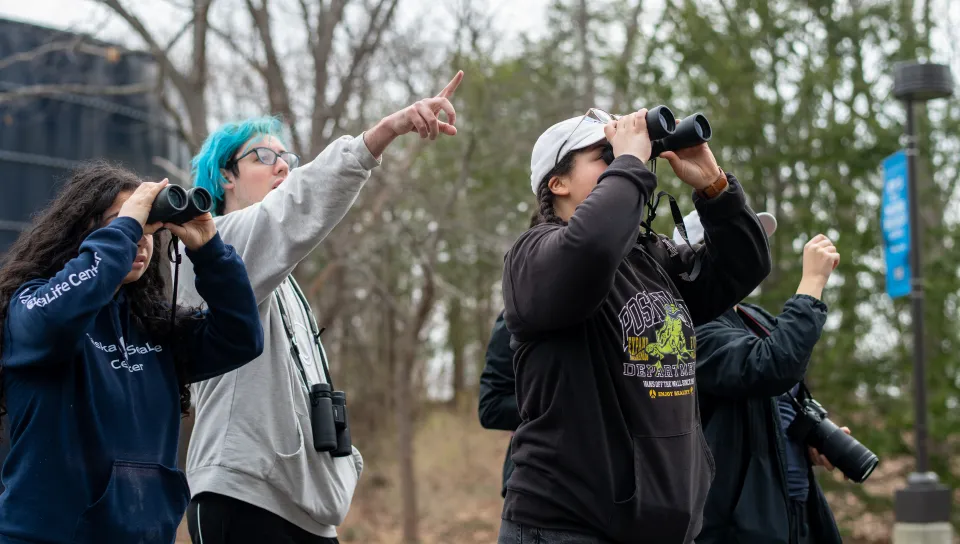
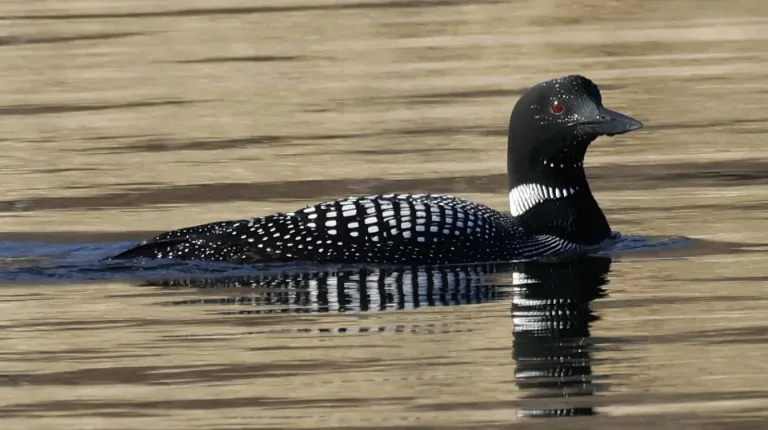
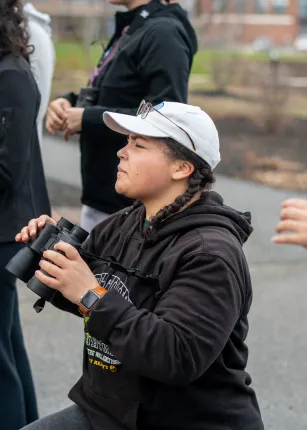
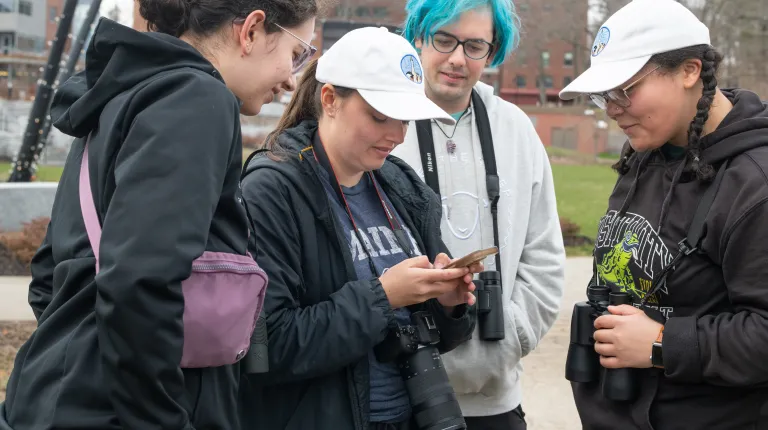
Loon photo submitted by Peyton Stevens (Animal Behavior, ’25)
Peyton Stevens (Animal Behavior, ’25), joined the birding club her first semester at UNE for the club’s generous vibe. When group discussions about birds turned into lessons about marginalized groups that bird, Stevens welcomed that, too.
“Once Haley got to be president, we have very much been about: ‘Here are the issues birds and birders are facing,’” Stevens said.
Likewise, senior Maria Hernandez (Animal Behavior), enthusiastically volunteered to serve as club secretary this year. Even though Hernandez considers herself a casual birder, she wanted to be part of the club’s ethic that Hines promotes that Hernandez said breaks down barriers — all because of a shared interest in a tiny, inconspicuous vertebrate.
“I think it is especially important right now that two of the officers of the club are people of color,” said Hernandez, who added that she is Hispanic. “If I was someone coming to UNE and I was in the minority and I see two people that look like me who might have similar experiences as me, that's promising. That creates hope. We can do a lot with that.”